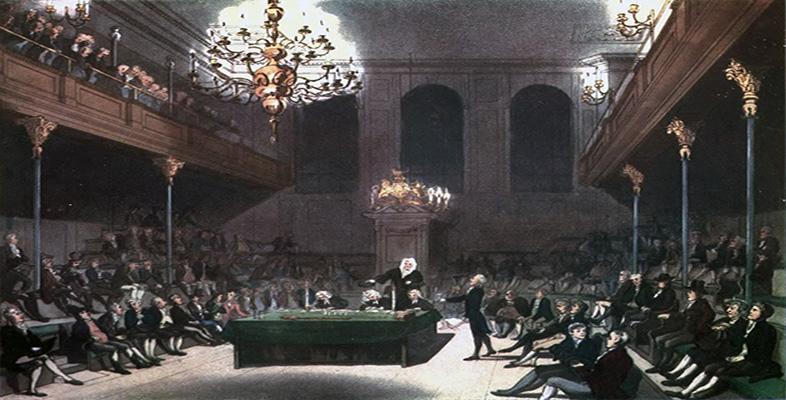1.4 Wilberforce in Parliament
When Wilberforce made his first major speech against the slave trade in the House of Commons in April 1789, few could have anticipated that it was the start of a campaign that he would have doggedly to maintain for 18 years. During most of the period between 1789 and 1807 Wilberforce brought forward at least one anti-slave trade motion or measure every year, to be met often with defeat, sometimes with partial successes that could not be translated into effective legislation. His initial timing was unfortunate because the outbreak of the French Revolution only a few months later stirred over the next few years a growing sense of insecurity in the British political elite. War with France followed in 1793. This meant that the abolition of the slave trade was liable to be regarded with enhanced suspicion because of the potential for unforeseeable consequences, notably in relation to the economics of overseas trade and British strategic interests in the West Indies.
It was in the early years of the Revolutionary Wars that Wilberforce, currently stalemated in his campaign against the slave trade and increasingly concerned about the condition of society at home, began work on the Practical View. Before looking more closely at this text, however, we set the scene with reference to the state of British religion, politics and society in the aftermath of the French Revolution.
